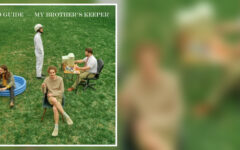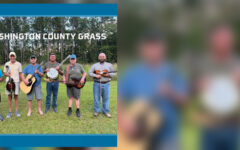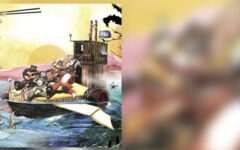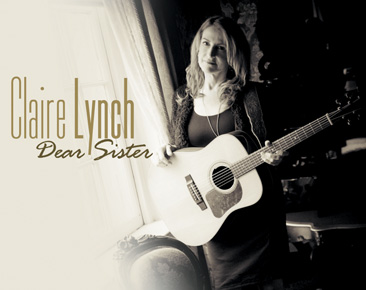
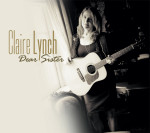 Let’s get the disclaimers out of the way right up front.
Let’s get the disclaimers out of the way right up front.
Yes, there are drums on many of the tracks on Claire Lynch’s Compass Records debut, Dear Sister. There’s also a Hammond B3 in a few places, though it’s hidden in the mix.
I don’t care.
And, yes, while The Claire Lynch Band has pushed the boundaries of bluegrass before, this one has more of a country sound than her recent projects.
I don’t care about that, either.
Here’s what I care about: Claire Lynch is singing on a new record. She could be accompanied by sandpaper and dental drills and I’d listen over and over again.
Fortunately, for those of us who love good music no matter which little box it fits into, she’s accompanied on this project by what just might be the best iteration of her band, which has always attracted great pickers over the years – Matt Wingate on guitar and mandolin, Bryan McDowell on fiddle and mandolin and Mark Schatz on the upright bass.
From start to finish, the band is tight and Garry West’s production shines. But that’s all gravy to accompany the main dish – one of the best voices in bluegrass, any era, any gender. (I’d put Dale Ann Bradley in that category, too, which is the only reason Claire doesn’t have a lock on IBMA’s female vocalist award year after year.)
From the opening lines of How Many Moons, Claire uses her voice to wring the emotion out of every song. There’s loneliness in Need Someone and Everybody Knows I’ve Been Crying. There’s triumph in That Kind of Love. There’s the anguish of love gone cold in Once the Teardrops Start to Fall. And there’s a bit of arrogance in the Bobby Osborne-Pete Gobel classic, I’ll Be Alright Tomorrow.
But the title cut seals the deal on this project. Dear Sister is a co-write with Louisa Branscomb, whose ancestors wrote their sister back home in Alabama as they fought, valiantly but in vain for the South during the Civil War. The chilling song – “This could be my last letter. I may never see the cotton fields of home again” – has its roots in the preserved letters of Louisa’s kin, which were recounted in a book written by her cousin, Frank Anderson Chappel, also called Dear Sister. It’s far and away the best of the 10 cuts on the CD.
The only weak link in the chain is the closing medley of Buttermilk Road and The Arbours, a tune written by Mark Schatz. I’ve heard the band do this live, and it’s terrific, but clogging and hambone don’t translate quite as well on a recording.
The big question about Dear Sister is how much airplay it will get. Dear Sister and I’ll Be Alright Tomorrow will be in regular rotation, for sure. But some of the other cuts are probably a bit too country for bluegrass radio and don’t, I’m happy to say, have the heavy pop flavor that’s dominant in what passes for country music these days.
But Claire Lynch has paid her dues. She’s earned the chance to make whatever kind of record she wants to make.
And no matter what you call it, she’s made a very good one.


